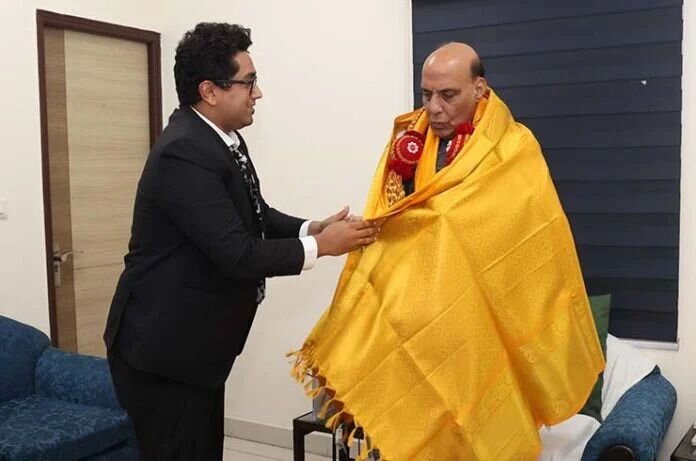Garuda Aerospace – a prominent Indian drone company, delved into their significant involvement in the development of defence drones in India during a recent one-on-one meeting with Defence Minister Shri Rajnath Singh. With an established presence in the Agri & Consumer Drone market, Garuda has set its sights on becoming a market leader in the defence sector within the next 2 years through a gradual transition.
Sharing more about the conversation, Mr. Agnishwer Jayaprakash, Founder and CEO of Garuda Aerospace, expressed his gratitude for the opportunity to meet with Hon’ble Defence Minister Shri Rajnath Singh. The Defence Minister was kind enough to dedicate time towards discussing our vision of establishing India as a drone hub by 2030. Our plan to manufacture in India for the global market was also met with praise from the Defence Minister, who extended his full support in further expanding Garuda’s operations to contribute towards Aatmanirbhar Bharat.
Jayaprakash shared details about the upcoming Defence Drone Facility in Chennai, which will feature cutting-edge technology and be advised by partner companies HAL and BEML. Spanning 30,000 square feet, this facility will serve as a hub for drone design, manufacturing, and testing.
It will also enable Indigenous Drone Subsystem Development and local production of essential components such as motors, batteries, and transmitters. Garuda Aerospace has ambitious plans to produce a range of drones with various capabilities including ISR, Swarm Drones, Tethered Drones, and even Underwater Drones.
During the interaction, it was highlighted how defence drone technology plays a critical role and aligns with the world vision of our respected Prime Minister, Shri Narendra Modi Ji. To support this vision for the armed forces, Garuda Aerospace will be at the forefront.
In addition, he received an update on the latest collaborations with Thales from France, Agrowing from Israel, and Spirit Aeronautics from Greece. Garuda has a strong dedication to producing in India and exporting globally through established technology transfer partnerships that will not only reduce expenses, but also create job opportunities for the youth throughout the country.
